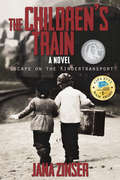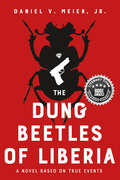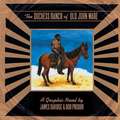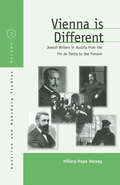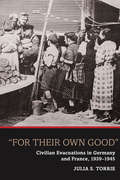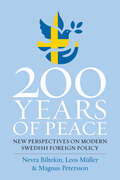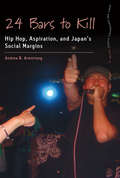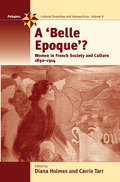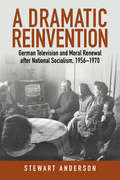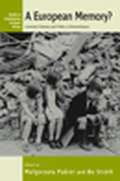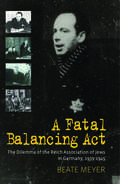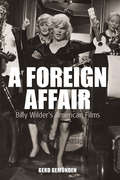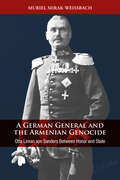- Table View
- List View
The Children’s Train: Escape On The Kindertransport
by Jana ZinserIt begins in November 1938 on The Night of the Broken Glass, when Jewish people of Germany are terrified as Hitler's men shatter their store windows, steal and destroy their belongings, and arrest many Jewish fathers and brothers. <p><p> Parents face unparalleled fear for their own lives but their focus is on protecting their beloved children. <p> When England arranges to take the children out of Germany by train, the Kindertransport is organized and parents scramble to get places on the trains for their young family members, worried about what the future will hold. <p> Soon, trains filled with Jewish children escaping the Nazis chug over the border into Holland, where they are ferried across the English Channel to England and to freedom. But for Peter, the shy violin player, his sister Becca, and his friends Stephen and Hans, life in England holds challenges as well. Peter's friend Eva, who did not get a seat on the Kindertransport, is left to the evil plans of Hitler. <p> Peter, working his musician's hands raw at a farm in Coventry, wonders if they should have stayed and fought back instead of escaping. When the Coventry farm is bombed as the Nazis reach England, Peter feels he has nothing left. He decides it's time to stand and fight Hitler. <p> Peter courageously returns to Germany to join the Jewish underground resistance, search desperately for his mother and sister he left behind in Berlin, and try to rescue his friend Eva.
The Dung Beetles of Liberia: A Novel Based On True Events
by Daniel V. Meier Jr.Based on the remarkable true account of a young American who landed in Liberia in 1961. <p><p> Ken Verrier is not happy, nor at peace. He is experiencing the turbulence of Ishmael and the guilt of his brother's death. His sudden decision to drop out of college and deal with his demons shocks his family, his friends, and especially his girlfriend, soon to have been his fiancee. His destination: Liberia - The richest country in Africa both in monetary wealth and in natural resources. <p> Nothing could have prepared Ken for the experiences he was about to live through. He quickly realizes that he has arrived in a place where he understands very little of what is considered normal, where the dignity of life has little meaning, and where he can trust no one. <p> Flying into the interior bush as a transport pilot, Ken learns quickly. He witnesses first-hand the disparate lives of the Liberian "Country People" and the "Congo People" also known as Americo-Liberians. These descendants of President Monroe's American Colonization Policy that sent freed slaves back to Africa in the 1800's have set up a strict hierarchical society not unlike the antebellum South. <p> Author Dan Meier describes Ken's many escapades, spanning from horrifying to whimsical, with engaging and fast-moving narrative that ultimately describe a society upon which the wealthy are feeding and in which the poor are being buried.It's a novel that will stay will you long after the last word has been read.
778 Orreaga. El nacimiento de un reino
by Arantzazu Ametzaga IribarrenHay momentos en los que los pueblos cambian el rumbo de su historia. Sucede en contadas ocasiones y exige la convergencia de muchas voluntades dispares. En esta novela Arantzazu Ametzaga nos narra con pasión uno de esos episodios, quizás el más relevante y desconocido, aquel que tuvo por epicentro un desfi ladero pirenaico allá por el mes de agosto del año 778. Y lo hace de forma documentada y amena, entretejiendo historias vitales articuladas en dos líneas temporales: el siglo VIII, acompañando a la expedición de Carlomagno a Vasconia, y el siglo XIII, en torno a la elaboración de las vidrieras de la catedral de Chartres. Un relato cautivador para evocar la gesta que, a la postre, dio lugar al nacimiento del primer reino vascón.
Behemoth (Trilogía Leviathan parte II)
by Scott Westerfeld Keith Thompson Raquel Solá GarcíaUn trono robado. Una misión secreta. Una aventura épica. El Behemoth es la criatura más feroz de la armada británica. Puede tragar buques de guerra enemigos de un solo bocado. Los darwinistas lo necesitarán, ahora que están en guerra contra los poderes clánker. Deryn es una chica que se hace pasar por chico en el Ejército del Aire británico y Alek es el heredero de un Imperio, aunque finge ser un plebeyo. Finalmente se conocen a bordo de la aeronave Leviathan y ambos esperan poder terminar con la guerra. Pero, cuando el desastre echa por tierra la misión pacificadora del Leviathan, se encuentran solos y perseguidos en territorio enemigo. Alek y Deryn necesitarán grandes dosis de habilidad, nuevos aliados y mucho valor para enfrentarse a todas las adversidades. No te pierdas el primer libro. ?Leviathan?
Caperucita y otros relatos vascos de terror
by Mikel Rodríguez ÁlvarezMikel Rodríguez ensayó en Sacamantecas y otros relatos vascos de terror un cruce entre el género fantástico ?muy particularmente tal y como lo entendió H. P. Lovecraft? y la tradición vasca más truculenta y esotérica. Aquel experimento, que se saldó con notable éxito, tiene continuidad en los ocho relatos que constituyen el presente volumen, entre los que se encuentran, además de Caperucita, que le da título, otros como La reina de Navarra debe morir, En el viejo internado de Lekaroz o Cartas marcadas. El autor se sirve de su condición de historiador para ambientar sus tramas con absoluta verosimilitud en el tiempo y en el espacio, ya sea en el siglo V, durante una incursión de los suevos en el valle de Baztan; en el XVI, en la refi nada corte navarra de Pau o en la cubierta de la legendaria carabela San Lesmes rumbo al Pacífi co; en la Nueva Orleans de piel negra del XIX o en la Guinea colonial de las primeras décadas del XX. Asimismo, los relatos están transitados por personajes históricos, tales como la reina Juana de Navarra, la guerrillera Martina Ibaibarriaga, el escritor Joannes Leizarraga, el espía Sebastián de Arbizu, el corsario Jean Lafi tte o el explorador Manuel Iradier. Rodríguez vuelve a aportar con este volumen un apreciable caudal, fresco y renovador, a una corriente literaria, la del género fantástico y de terror, que, aunque quizá no afl ore con excesiva frecuencia, fl uye desde lo más profundo de la tradición y la historia vascas.
El sueño de Akala
by Francisco Panera RodríguezMiles de personas entran y salen todos los días de Bilbao a través del túnel de Malmasín. Pocas sospechan que sobre sus cabezas, en la cima de ese monte situado entre Arrigorriaga y Basauri, se hallan los restos de un poblado fortificado de la Edad de Hierro, el período inmediatamente anterior a la época romana. Francisco Panera se ha inspirado en esos restos para escribir El sueño de Akala, una novela en la que caristios y autrigones, dos de los pueblos que, como várdulos, berones o vascones, habitaron hace 2.000 años lo que hoy es territorio vasco, mantienen un pleito secular por el control de una posición estratégica en torno a un río que bien pudiera ser el Nervión. Los romanos deciden intervenir en la disputa y lo hacen como juez y parte. En ese marco se desenvuelven los personajes de esta novela, muchos y variados, desde un chico capaz de vislumbrar el futuro, a una anciana marginada por los suyos acusada de hechicería, pasando por una mujer que acaba de enviudar en extrañas circunstancias o un veterano tribuno romano cuya convicción en las bondades del Imperio está a punto de resquebrajarse. El sueño de Akala es ante todo una trepidante novela de aventuras, repleta de lances y giros inesperados. Pero, como toda buena novela, no renuncia a abordar cuestiones fundamentales, como el amor, la ambición, la lealtad o la libertad.
Goliath (Trilogía Leviathan parte III)
by Scott Westerfeld Keith Thompson Raquel Solá GarcíaAlek y Deryn se encuentran a bordo del Leviathan cuando se le ordena a la aeronave que recoja a un extraño pasajero. El brillante aunque loco inventor afirma que tiene un arma llamada Goliath que puede terminar la guerra, pero ¿en qué bando está el científico en realidad? Mientras se encuentran en esa misión secreta, Alek finalmente descubre el secreto de Deryn profundamente guardado, en realidad dos, puesto que Deryn no es solo una chica disfrazada de chico? sino que también siente algo por Alek. La corona, el amor verdadero que siente por una plebeya y la destrucción de una gran ciudad, todo ello espera el siguiente y último movimiento de Alek.
La cadena rota
by Toti Martínez de Lezea Aritz Albaizar Martínez de LezeaOcurrió en Sara, un pequeño pueblo de la frontera, durante la Revolución francesa. En medio del caos y de la incertidumbre, de la guerra entre Francia y España, del exilio obligado de sacerdotes y contrarrevolucionarios, Joantto Ithurbide, nieto bastardo de Gehexan de Jaurenea, hidalgo de Sara, a quien su abuelo rechazó tras su nacimiento, busca sus raíces y, también, la venganza. Junto a él, la joven Mari Harotsenne encuentra el amor y la desesperanza. Personajes, como Jean-Martin Monduteguy, procurador de la República, que desterró a sus paisanos lejos de su tierra, Gartzia, antiguo pastor, convertido en contrabandista, y otros cuyas existencias son reales o ficticias, conforman el retablo de una época histórica y dura que cambió la vida de sus protagonistas.
La mujer en la cueva
by Francisco LetamendiaPaís Vasco, septiembre de 1983, apenas un mes antes del comienzo oficial de las actividades de los GAL. Ane Goikoa, la mujer de Ramón Zubía, senador de la izquierda independentista, ha sido secuestrada por un grupo desconocido. Jean Houtsa, francés de origen vasco, emparentado con la mujer, es requerido para que haga labores de intermediación. Francisco Letamendia, Ortzi, ha hecho un paréntesis en el cultivo del ensayo, dentro del ámbito académico de la Ciencia Política que le es propio, para realizar esta incursión en la literatura de ficción. El tema elegido, así como el hecho de que el propio autor fuera en su día parlamentario independentista, podrían inducir al lector a pensar que se trata de una novela política, pero Letamendia prefiere considerarla como una novela negra, con todo lo que una novela que se precie de tal adjetivo puede ofrecer: secuestro, asesinatos, corrupciones policiales, intriga, con distintos misterios dentro de un enigma, y hasta un poco de erotismo. Contiene también, y esto es más inusual en las novelas negras, varias historias de amour fou, de amor más allá de la muerte. Puesto que es un relato imaginado, se podría decir, como en los títulos de crédito de las viejas películas, que todo parecido con la realidad es pura coincidencia, y, por tanto, el lector no tiene que preocuparse por ello? ¿O quizá sí?
La ría de los afrancesados
by Ascensión Badiola AriztimuñoLA RÍA DE LOS AFRANCESADOS es una novela ambientada en el Bilbao del último cuarto del siglo XVIII. Un Bilbao con problemas "domésticos", como las inundaciones, la especulación del suelo o la pugna con otras anteiglesias y villas de Bizkaia a cuenta del férreo monopolio que ejerce sobre el puerto. Pero también un Bilbao afectado de lleno por lo que está ocurriendo en Europa. La brisa de las ideas ilustradas, acogidas con esperanza, por lo que suponen de palanca para modernizar el país, atenazado por el absolutismo, no tardará en tornarse en huracán, sumida en el torbellino de la Revolución y la guerra. En este marco, conviven una serie de personajes que representan una amplia gama de posturas y, lógicamente, también de sentimientos. Especialísimo protagonismo adquiere un grupo de mujeres. Aunque de muy diferente clase y condición, todas ellas laboran por abrirse paso en una sociedad que las tiene absolutamente relegadas.
Leviathan (Trilogía Leviathan parte I)
by Scott Westerfeld Keith Thompson Raquel Solá GarcíaNos encontramos en la cúspide de la Primera Guerra Mundial y todas las potencias europeas se están armando. Los austrohúngaros y alemanes tienen sus clánkers, unas máquinas de acero con motores de vapor cargados de armas y municiones. Los darwinistas británicos emplean animales fabricados como armas de guerra. Su Leviathan es un dirigible ballena, la bestia más poderosa de la flota británica. Aleksandar Ferdinand, príncipe del Imperio austrohúngaro ha huido. Su propia gente se ha vuelto contra él. Su título no tiene ya ningún valor y solo cuenta con un Caminante de Asalto desgastado por la batalla y con su leal tripulación. Deryn Sharp es una plebeya, una chica disfrazada de chico que se ha alistado en las Fuerzas Aéreas británicas. La muchacha es un destacado aviador, pero su secreto se encuentra en peligro constante de ser descubierto. Cuando la Gran Guerra es ya inminente, los caminos de Alek y Deryn se cruzan de la forma más inesperada llevándolos a ambos a bordo del Leviathan donde darán la vuelta al mundo y vivirán una fantástica aventura que cambiará sus vidas para siempre.
Martina, guerrillera
by Ascensión Badiola AriztimuñoMartina Ibaibarriaga, natural de Berriz y vecina de Bilbao, se echó al monte, como un hombre más, para combatir a las tropas de Napoleón. Cuando las partidas guerrilleras se integraron en el ejército regular, alcanzó el rango de teniente coronel, y como tal participó en la decisiva Batalla de Vitoria, de la que este año se conmemora el segundo centenario. Su coraje hizo que su inmediato superior, Francisco de Longa, otro guerrillero legendario, la presentase al propio Wellington, quien no pudo evitar mostrar su asombro al comprobar que aquel soldado al que había visto luchar tan valerosamente era en realidad una mujer. Hoy, una calle en Vitoria recuerda a la ?Coronela Ibaibarriaga?. Y, a pesar de todo, la singular peripecia vital de Martina es muy poco conocida por parte del gran público. Ello se debe, al menos en parte, a que la documentación existente es escasa. Ascensión Badiola aprovecha esas lagunas para construir ?una historia de amor y guerra? en torno al asombroso personaje de Martina. Es una novela histórica, ambientada con rigor en la época que recrea, pero es también una novela de aventuras.
Sacamantecas y otros relatos vascos de terror
by Mikel Rodríguez ÁlvarezLas historias que constituyen este volumen son fruto de un afortunado cruce entre el género de terror ?muy particularmente tal y como lo entendió H. P. Lovecraft, cuya «presencia», siempre inquietante, es notoria a lo largo de todo el libro? y la tradición vasca más truculenta y esotérica. El título del texto que encabeza el volumen, Sacamantecas, o el de otros, como Sabbat, Hombre-lobo en Bergara o Vampiros en Donostia, son suficientemente elocuentes sobre el espíritu que ha animado al autor, Mikel Rodríguez, quien se ha servido de su condición de historiador para ambientar los relatos con notable rigor en el tiempo y en el espacio. Así, en ellos aparecen referencias explícitas al misterioso despoblado alavés de Otxate, a las cazas de brujas del siglo XVI y XVII en el Labourd y en el país del Bidasoa o al naufragio en extrañas circunstancias del mercante Komaroski en aguas de Donostia, suceso éste que pudo inspirar a Bram Stoker uno de los episodios más conocidos de Drácula. Del mismo modo, los relatos están poblados por personajes históricos, desde un asesino en serie como Juan Díaz de Garayo, el famoso Sacamantecas, hasta Sabino Arana, fundador del PNV, pasando por el científico Fausto Elhuyar o el fabulista Félix María Samaniego. Rodríguez se suma con este volumen a una corriente literaria, la del género fantástico y de terror, que, aunque quizá no aflore con excesiva frecuencia, fluye desde lo más profundo de la tradición y la historia vascas.
Sinfonia guerrera
by Iñigo Bolinaga IrasuegiEl 21 de junio de 1813, un ejército dirigido por Wellington infligió a las tropas de Napoleón una monumental derrota en las inmediaciones de Vitoria. El propio hermano del emperador, José, a la sazón rey de España, tuvo que huir a uña de caballo para evitar perecer o caer prisionero. Aquel acontecimiento, del que este año se conmemora el segundo centenario, supuso el repliegue definitivo de los franceses de la península ibérica y obtuvo un enorme eco en Europa, pues jamás antes las tropas imperiales habían sufrido tamaña derrota en combate. Al rebufo de este eco, Beethoven compuso una sinfonía en conmemoración de la Batalla de Vitoria que cosechó un éxito enorme, aunque luego el autor se lamentara de que, por primera y única vez en su vida, había sucumbido a los gustos del público menos exigente. Con este telón de fondo, Iñigo Bolinaga construye una novela estructurada en dos planos: el primero se corresponde con la batalla real, sangrienta y cruel, que invoca a los instintos más bajos del ser humano; el segundo, a la batalla imaginada, épica, gloriosa, sublime. El primero está protagonizado fundamentalmente por personajes históricos que estuvieronen Vitoria? Welllington, su amigo Álava, el rey José, su amante la marquesa de Montehermoso? y muchos, muchos guerrilleros, como Longa, Espoz y Mina, Dos Pelos o Martina Ibaibarriaga. El segundo plano corre a cargo de Beethoven y sus circunstancias, que son también, en buena medida, las de la Europa del momento. Sinfonía guerrera es una novela tan breve como intensa, tan amena como rigurosamente documentada desde el punto de vista histórico.
The Duchess Ranch of old John Ware
by James DavidgeFreed from slavery after the end of the American Civil War, John Ware rode various cattle drives from the southern United States to the foothills of the Canadian Rocky Mountains, where he rose to become a prominent rancher. This true tale of determination and character is an inspiration to all.
"vienna Is Different"
by Hillary HopeAssessing the impact of fin-de-siècle Jewish culture on subsequent developments in literature and culture, this book is the first to consider the historical trajectory of Austrian-Jewish writing across the 20th century. It examines how Vienna, the city that stood at the center of Jewish life in the Austrian Empire and later the Austrian nation, assumed a special significance in the imaginations of Jewish writers as a space and an idea. The author focuses on the special relationship between Austrian-Jewish writers and the city to reveal a century-long pattern of living in tension with the city, experiencing simultaneously acceptance and exclusion, feeling "unheimlich heimisch" (eerily at home) in Vienna.
''For Their Own Good''
by Julia S. TorrieThe early twentieth-century advent of aerial bombing made successful evacuations essential to any war effort, but ordinary people resented them deeply. Based on extensive archival research in Germany and France, this is the first broad, comparative study of civilian evacuations in Germany and France during World War II. The evidence uncovered exposes the complexities of an assumed monolithic and all-powerful Nazi state by showing that citizens' objections to evacuations, which were rooted in family concerns, forced changes in policy. Drawing attention to the interaction between the Germans and French throughout World War II, this book shows how policies in each country were shaped by events in the other. A truly cross-national comparison in a field dominated by accounts of one country or the other, this book provides a unique historical context for addressing current concerns about the impact of air raids and military occupations on civilians.
200 Years of Peace: New Perspectives on Modern Swedish Foreign Policy
by Magnus Petersson Nevra Biltekin, Leos MüllerSince 1814 Sweden has avoided involvement in armed conflicts and carried out policies of non-alignment in peacetime and neutrality during war. Even though the Swedish government often describes Sweden as a ‘nation of peace’, in 2004 the 200-year anniversary of that peace passed by with barely any attention. Despite its extraordinary longevity, research about the Swedish experience of enduring peace is underdeveloped. 200 Years of Peace places this long period of peace in broader academic and public discussions surrounding claimed Swedish exceptionality as it is represented in the nation’s social policies, expansive welfare state, eugenics, gender equality programs, and peace.
24 Bars to Kill: Hip Hop, Aspiration, and Japan's Social Margins (Dance and Performance Studies #14)
by Andrew B. ArmstrongThe most clearly identifiable and popular form of Japanese hip-hop, “ghetto” or “gangsta” music has much in common with its corresponding American subgenres, including its portrayal of life on the margins, confrontational style, and aspirational “rags-to-riches” narratives. Contrary to depictions of an ethnically and economically homogeneous Japan, gangsta J-hop gives voice to the suffering, deprivation, and social exclusion experienced by many modern Japanese. 24 Bars to Kill offers a fascinating ethnographic account of this music as well as the subculture around it, showing how gangsta hip-hop arises from widespread dissatisfaction and malaise.
A Belle Epoque?
by Diana Holmes Carrie tarrThe Third Republic, known as the 'belle époque', was a period of lively, articulate and surprisingly radical feminist activity in France, borne out of the contradiction between the Republican ideals of liberty, equality and fraternity and the reality of intense and systematic gender discrimination. Yet, it also was a period of intense and varied artistic production, with women disproving the critical nearconsensus that art was a masculine activity by writing, painting, performing, sculpting, and even displaying an interest in the new "seventh art" of cinema. This book explores all these facets of the period, weaving them into a complex, multi-stranded argument about the importance of this rich period of French women's history.
A Dramatic Reinvention: German Television and Moral Renewal after National Socialism, 1956–1970
by Stewart AndersonFollowing World War II, Germany was faced not only with the practical tasks of reconstruction and denazification, but also with the longer-term mission of morally “re-civilizing” its citizens—a goal that persisted through the nation’s 1949 split. One of the most important mediums for effecting reeducation was television, whose strengths were particularly evident in the thousands of television plays that were broadcast in both Germanys in the 1950s and 1960s. This book shows how TV dramas transcended state boundaries and—notwithstanding the ideological differences between East and West—addressed shared issues and themes, helping to ease viewers into confronting uncomfortable moral topics.
A European Memory?
by Małgorzata Pakier Bo StråthAn examination of the role of history and memory is vital in order to better understand why the grand design of a United Europe--with a common foreign policy and market yet enough diversity to allow for cultural and social differences--was overwhelmingly turned down by its citizens. The authors argue that this rejection of the European constitution was to a certain extent a challenge to the current historical grounding used for further integration and further demonstrates the lack of understanding by European bureaucrats of the historical complexity and divisiveness of Europe's past. A critical European history is therefore urgently needed to confront and re-imagine Europe, not as a harmonious continent but as the outcome of violent and bloody conflicts, both within Europe as well as with its Others. As the authors show, these dark shadows of Europe's past must be integrated, and the fact that memories of Europe are contested must be accepted if any new attempts at a United Europe are to be successful.
A Fatal Balancing Act: The Dilemma of the Reich Association of Jews in Germany, 1939-1945
by Beate MeyerIn 1939 all German Jews had to become members of a newly founded Reich Association. The Jewish functionaries of this organization were faced with circumstances and events that forced them to walk a fine line between responsible action and collaboration. They had hoped to support mass emigration, mitigate the consequences of the anti-Jewish measures, and take care of the remaining community. When the Nazis forbade emigration and started mass deportations in 1941, the functionaries decided to cooperate to prevent the "worst." In choosing to cooperate, they came into direct opposition with the interests of their members, who were then deported. In June 1943 all unprotected Jews were deported along with their representatives, and the so-called intermediaries supplied the rest of the community, which consisted of Jews living in mixed marriages. The study deals with the tasks of these men, the fate of the Jews in mixed marriages, and what happened to the survivors after the war.
A Foreign Affair
by Gerd GemundenWith six Academy Awards, four entries on the American Film Institute's list of 100 greatest American movies, and more titles on the National Historic Register of classic films deemed worthy of preservation than any other director, Billy Wilder counts as one of the most accomplished filmmakers ever to work in Hollywood. Yet how American is Billy Wilder, the Jewish émigré from Central Europe? This book underscores this complex issue, unpacking underlying contradictions where previous commentators routinely smoothed them out. Wilder emerges as an artist with roots in sensationalist journalism and the world of entertainment as well as with an awareness of literary culture and the avant-garde, features that lead to productive and often highly original confrontations between high and low.
A German General and the Armenian Genocide: Otto Liman von Sanders Between Honor and State
by Muriel Mirak-WeissbachThe legacy of the German General, Otto Liman von Sanders, remains highly contested in the history of twentieth-century Europe and the Middle East. Noted for leading the 5th Ottoman army’s successful defence of the Dardanelles and Gallipoli in 1915, his role in opposing the Young Turks’ genocide policy and safeguarding Greeks, Armenians, and Jews is overshadowed by his imprisonment for war crimes in 1919. In this enlightening reassessment of Liman von Sanders’ life, Muriel Mirak-Weissbach uses previously-unpublished archival materials to uncover new dimensions to this story and, in doing so, explores wider ethical questions concerning the role of the individual in global crises, the nature of morality in military conflict, and the limitations of justice.
